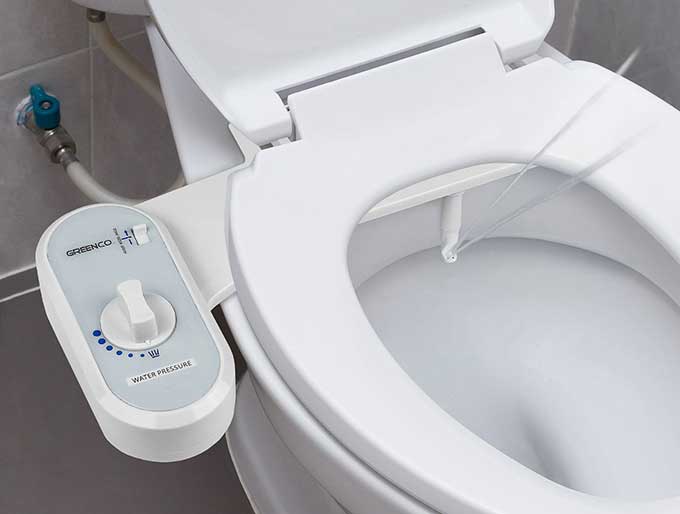
Εμείς είμαστε μερακλήδες, της σχολής οι γυναίκες δεν χέζουν, δεν κλάνουν, δεν κατουράνε, δεν βρομάνε τα πόδια τους, οι μασχάλες, το στόμα τους και η κωλοχαράδρα τους.





Walking Around With Dirty Anuses
We live in the dark ages of post-shit cleanup. In a wide world that has long embraced the effectiveness of anus-washing after doing number two, America hangs back, clutching our rolls of Charmin, despite plenty of evidence that it would serve us better to wash instead of wipe. We may be obsessed with sanitation, yet we insist, against reason, on the least-sanitary, least-healthy option for managing our poop.
"Toilet paper moves shit, but it doesn't remove it. You wouldn't shower with a dry towel; why do you think that dry toilet paper cleans you?"
"I find it rather baffling that millions of people are walking around with dirty anuses while thinking they are clean," George says. "Toilet paper moves shit, but it doesn't remove it. You wouldn't shower with a dry towel; why do you think that dry toilet paper cleans you?"
This particular convention, dating back to the 18th and 19th centuries, has a surprisingly tawdry origin considering the taboo that surrounds it today. "English men met up with bidets when they would go to Paris, often to live a libertine life," Molotoch says. In particular they associated bidets with brothels and prostitutes and in that way they took on an extra element of salaciousness.
Bidets were also suspected by some to be a form of birth control, Molotoch says, which added to the anxiety around the appliance. "It's associated with frivolity, weakness, immorality, femininity so therefore denigrated," he says.
"The more hurdles there are, the more you have to talk about these things," Molotoch says. "And given that these things are all sort of surrounded by taboo, then that further erodes the possibility of anything changing."
Bidets have also been associated with reduced occurrence of urinary tract infections as well because they help remove the bacteria that can multiply at the opening of the urethra and travel up to the bladder, Nandi says. "While the use of toilet paper does not ensure cleanliness in the restroom, bidets can prevent UTIs by offering a refreshing and sanitary way to remove bacteria and ensure the spread of bacteria does not occur," he says.
Meanwhile, infectious diseases are commonly spread by direct person-to-person contact, according to the Mayo Clinic, and fecal matter is one agent of direct transmission. Research done by Michigan State University in 2013 found that only 5 percent of people wash their hands for long enough to destroy infectious germs after using the bathroom. If they have a bidet, at least something is getting washed properly—and there's less need for your hands to be near fecal matter at all.
https://tonic.vice.com/en_us/article/xy ... e=vicefbus

Διάδοχος έγραψε:Δλδ αν η άλλη έχει χέσει, έχει σκουπιστεί απλά με χαρτί, ή τα έχει πασαλείψει απλά με μωρομάντηλο, και μετά πας και τρίβεις τα μούτρα στον κώλο της, δεν αρπάζεις τα σχετικά βακτήρια/μικρόβια;
To σκατό δεν είναι ανάγκη να το φας στο πιάτο για να είσαι κοπρολάγνος, αρκούν και τα αόρατα ψήγματα..
Δλδ τώρα όλοι αυτοί δεν πρέπει να κλειστούν σε αναμορφωτήρια μέχρι να τους γίνουν συνείδηση οι βασικοί κανόνες υγιεινής;
ΥΓ
Και οι περισσότεροι που πλένουν τα χέρια τους, βρωμύλοι είναι. Αν δεν το κάνεις σωστά, απλά απλώνεις περισσότερο την βρωμιά και την χώνεις πιο βαθιά, κάτω απ τα νύχια σου, ανάμεσα στα δάχτυλα, κλπ.
.gif)







